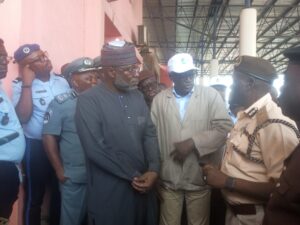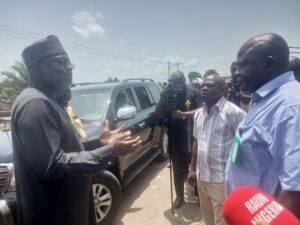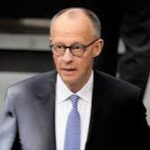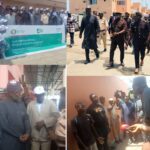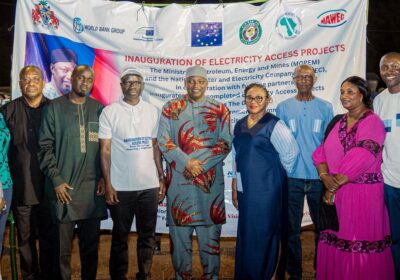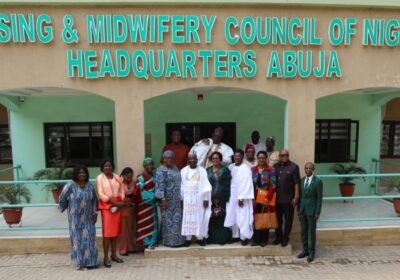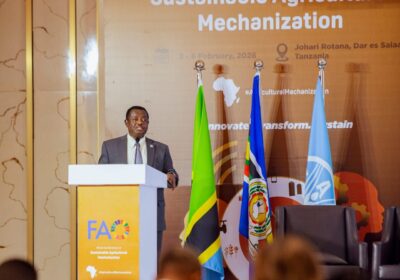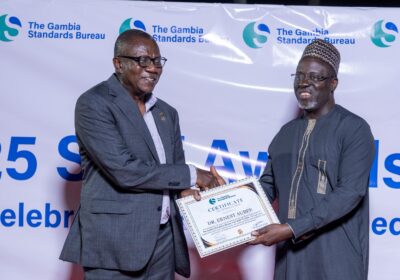ECOWAS ETLS: “Free Movement Does Not Mean No Documentation” – ECOWAS President Clarifies. By Raymond Enoch
In a significant move to reaffirm the commitment of the Economic Community of West African States (ECOWAS) to regional integration and security, the President of the ECOWAS Commission, Dr. Omar Alieu Touray, has clarified that the protocol on the free movement of goods and services under the ECOWAS Trade Liberalization Scheme (ETLS) does not eliminate the need for proper documentation.
Dr. Touray made this statement during an official mission of on-the-spot assessment visit to the Nigeria–Lagos Seme Border—one of the busiest and most strategic land corridors in the West African sub-region.
The visit is part of ECOWAS’s broader effort to ensure the practical implementation of its protocols and to identify barriers impeding their effectiveness.
The core objective of the ECOWAS Commission mission was to directly engage with border Citizens, security operatives, customs officials, and commuters, in order to better understand the realities on the ground. By driving over 200 kilometers from Lagos to the Seme Border, the ECOWAS President demonstrated both symbolic and practical leadership—signaling that the Commission is not disconnected from the daily experiences of West African citizens and traders.
Along the corridor, Dr. Touray made deliberate stopovers to interact with local communities and security agencies manning the border. These interactions afforded him the opportunity to hear firsthand the concerns, challenges, and observations of those most affected by cross-border policies. The mission also aimed to evaluate how well the provisions of the ECOWAS Protocol on Free Movement of Persons, Residence, and Establishment are being implemented in real time.
Dr. Touray used the visit to emphasize that while the protocol guarantees the right of ECOWAS citizens to move, reside, and establish businesses across member states, it does not translate to the absence of documentation or regulation. “Free movement does not mean no documentation,” he stated firmly, adding that appropriate identity papers, security checks, and customs procedures remain necessary to balance openness with safety and order.
Adopted in 1979, the ECOWAS Free Movement Protocol is a cornerstone of regional economic integration. It aims to create a borderless West Africa where citizens can trade, invest, and seek opportunities across member states. The successful implementation of this protocol is seen as vital to the region’s growth, development, and stability.
Dr. Touray’s visit, therefore, underscores ECOWAS’s proactive stance in addressing implementation challenges, while also reaffirming its dedication to building a more unified and prosperous West African community.